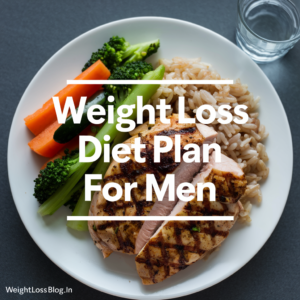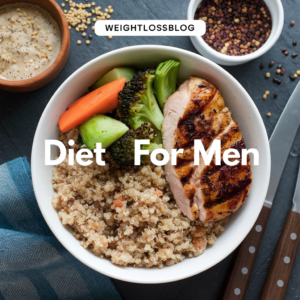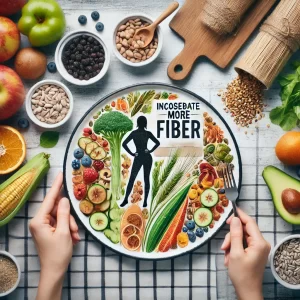The Essential Do’s and Don’ts of the Zone Diet for Weight Loss
Introduction
The Zone Diet is a structured eating plan that focuses on balancing macronutrients—carbohydrates, protein, and fat—in the 40-30-30 ratio to promote weight loss and improve overall health. While the diet’s principles may seem simple, following the right approach is key to maximizing its benefits. This list of do’s and don’ts will help you  successfully navigate the Zone Diet and achieve your weight loss goals.
successfully navigate the Zone Diet and achieve your weight loss goals.
Do’s of the Zone Diet
1. Do Follow the 40-30-30 Rule
The foundation of the Zone Diet is the 40-30-30 rule, which calls for 40% of your daily calories to come from carbohydrates, 30% from protein, and 30% from fat. To get the most out of the diet, it’s important to follow this macronutrient ratio with every meal and snack. This balance will help stabilize your blood sugar levels, control hunger, and promote fat burning.
Use a food diary or app to track your macronutrient intake and ensure you’re meeting the 40-30-30 ratio with each meal. This will help you stay on track and maximize the benefits of the diet.
2. Do Focus on Low-Glycemic Carbohydrates
The Zone Diet encourages low-glycemic carbohydrates, which are digested slowly and help maintain stable blood sugar levels. Focus on whole, unprocessed carbs like vegetables, fruits, and whole grains, which provide essential nutrients without causing blood sugar spikes.
Avoid refined carbohydrates like white bread, pasta, and sugary snacks, which can disrupt your blood sugar levels and lead to cravings and overeating.
3. Do Include Protein in Every Meal
Protein is a key component of the Zone Diet, and it’s important to include a source of protein in every meal and snack. Lean meats, fish, eggs, and plant-based proteins like tofu and legumes are excellent options that will help keep you full, support muscle maintenance, and promote fat burning.
Including protein in every meal will also help stabilize your blood sugar levels and prevent hunger between meals.
4. Do Prioritize Healthy Fats
The Zone Diet includes 30% of daily calories from healthy fats, which are essential for promoting satiety, supporting hormone production, and reducing inflammation. Focus on healthy fats from sources like olive oil, avocado, nuts, and seeds to support overall health and weight loss.
Avoid unhealthy fats, such as trans fats and highly processed vegetable oils, which can promote inflammation and hinder your weight loss progress.
5. Do Stay Hydrated
Proper hydration is important for overall health and weight loss. Drinking enough water supports digestion, helps flush out toxins, and keeps your energy levels up. Aim for at least 8 glasses of water per day, and consider drinking herbal teas or adding lemon to your water for flavor.
Staying hydrated will also help prevent cravings and overeating, as thirst  is often mistaken for hunger.
is often mistaken for hunger.
Don’ts of the Zone Diet
1. Don’t Skip Meals
Skipping meals can disrupt your macronutrient balance and lead to overeating later in the day. The Zone Diet encourages eating balanced meals and snacks throughout the day to keep your blood sugar levels stable and prevent hunger.
Even if you’re not feeling hungry, try to eat three meals a day that follow the 40-30-30 rule. This will help keep your metabolism functioning optimally and support steady weight loss.
2. Don’t Focus Solely on Calories
While creating a calorie deficit is essential for weight loss, the Zone Diet emphasizes macronutrient balance over calorie counting. Focus on getting the right balance of carbohydrates, protein, and fats in each meal, rather than obsessing over calorie limits.
By following the 40-30-30 ratio, you’ll naturally consume fewer calories and feel fuller for longer, making it easier to maintain a calorie deficit without feeling deprived.
3. Don’t Rely on Processed Foods
The Zone Diet encourages whole, unprocessed foods that provide essential nutrients and support stable blood sugar levels. Avoid processed foods like packaged snacks, sugary drinks, and refined carbohydrates, which can disrupt your macronutrient balance and lead to cravings and overeating.
Focus on fresh, nutrient-dense foods like vegetables, fruits, lean proteins, and healthy fats to get the most out of the diet and support sustainable weight loss.
4. Don’t Forget About Fiber
Fiber is an important component of a healthy diet and is especially important on the Zone Diet, where the focus is on low-glycemic carbohydrates. Fiber helps regulate digestion, supports stable blood sugar levels, and promotes satiety. Make sure to include fiber-rich foods like vegetables, fruits, and whole grains in every meal.
Eating enough fiber will help you feel full and satisfied while  supporting your weight loss goals.
supporting your weight loss goals.
5. Don’t Neglect Meal Planning
Meal planning is crucial for success on the Zone Diet, especially if you’re new to tracking macronutrients. Plan your meals and snacks for the week in advance, and make sure you have the ingredients you need to create balanced, Zone-friendly meals. This will help you avoid the temptation to grab non-compliant foods when you’re busy or hungry.
Preparing meals in bulk and keeping healthy snacks on hand will make it easier to stick to the diet and achieve your weight loss goals.
Conclusion
The Zone Diet is a highly effective and structured approach to weight loss that focuses on balancing macronutrients to stabilize blood sugar, control hunger, and promote fat burning. By following these essential do’s and don’ts, you can maximize your success on the Zone Diet and achieve your weight loss goals while maintaining a balanced, nutritious eating plan.
Focus on whole, unprocessed foods, track your macronutrients, and stay hydrated to ensure long-term success on your Zone Diet journey.